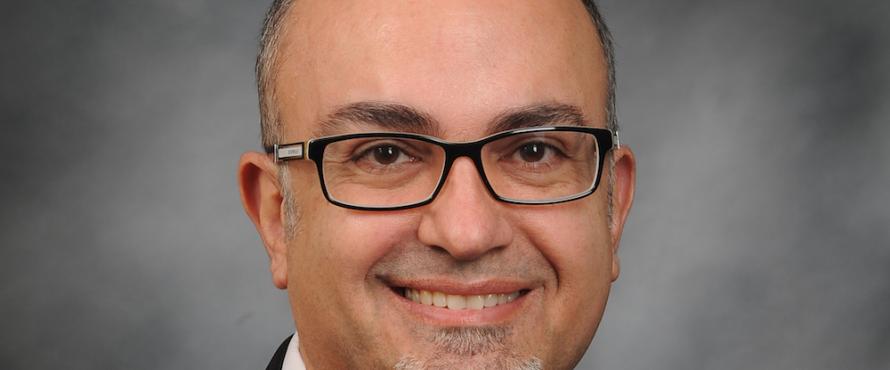Phi Alpha Theta, the international honor society for History students and professors, has awarded Northeastern Illinois University Associate Professor Mateo M. Farzaneh the 2016 Best First Book Award.
Farzaneh’s book, “The Iranian Constitutional Revolution and the Clerical Leadership of Khurasani,” was published in March 2015 by Syracuse University Press. The book provides an overview of the political history of Iran in the 19th and early 20th centuries and the ideas of the renowned cleric Mulla Muhammad Kazim Khurasani. The Constitutional Revolution (1906-1911) was the 20th century’s first such political movement in the Middle East. Khurasani, a Shiite jurist, scholar and spiritual leader, was a leading advocate of constitutionalism.
“As a Western concept, constitutionalism found many enemies in the Iranian traditional camp but their most notable leader, Khurasani, found it to be extremely helpful. That alone adds more to the perplexity of Iranian history and its contemporary behavior,” said Farzaneh, who engaged on a nationwide campus tour to promote his book after its publication. “But with Khurasani’s Islamic justification and friendly disposition toward constitutionalism, the Revolution succeeded in a historically significant period in the region.”
Farzaneh’s research interests are constitutionalism and Iranian Shiism. However, he’s taking his knowledge in a different direction for his next book about Iranian women in the Iran-Iraq War. “A Bangle Today, A Son Tomorrow: The Role of Iranian Women in the Iran-Iraq War” will be published in summer 2018 on the occasion of the 30-year anniversary of the end of that conflict. Farzaneh continues to travel nationally and internationally to promote his book and his upcoming publications.
Farzaneh is the recipient of a COR grant, which he used to travel to Iran to examine a recently opened archive in Tehran for a project that explores the last years of the Pahlavi regime before the Islamic Revolution of 1979 and will spend part of his sabbatical leave in 2017 to conduct research for his current project.
.jpg)








